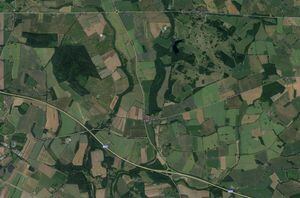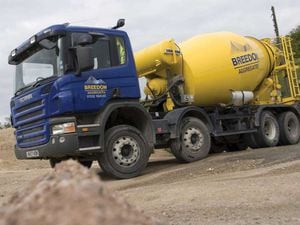Gigafactory to be built in South Wales
It has been revealed a gigafactory creating thousands of jobs will be built in South Wales – only a week after Shropshire Council said it would not back development on a site it had previously promoted for one.

A green belt site close to the border of Shropshire and Staffordshire was put forward to the Government as a potential location for one of the country's new ‘gigafactories’.
The Government has been looking at the potential of building several of the factories due to the expected increase in the use of electric cars.
Now one of the companies planning a gigafactory has revealed it has chosen St Athan in the Vale of Glamorgan as its preferred location to build the battery cell factory for electric cars.
The project could have been worth more than £1 billion to the region’s economy, bringing much-needed jobs and cementing the West Midlands’ reputation as a centre of excellence for the car industry.
The Bradford Estates, which owns land north of Junction 3 of the M54, has previously confirmed it was working with Shropshire Council on submitting its site to the Government as a potential location for the new industry.
However, the council's decision not to back the Bradford Estates site in the local plan, which will go before the authority's cabinet later this month, means that proposal will go no further.
Priority
Britishvolt, the company behind the plans for the factory, said one of the reasons it chose the St Athan in the Vale of Glamorgan is because of the availability of skilled workers. There is also an Aston Martin production facility in the area.
Orral Nadjari, CEO and founder at Britishvolt, said: “We are immensely proud to announce plans to work exclusively with the Welsh Government to develop the UK’s landmark battery gigaplant.
"Wales has welcomed us with open arms and exceptional due diligence and we believe the country has a vast untapped potential. Hiring local people, including those currently out of work, and developing strong relationships with nearby educational facilities will be a priority for us to ensure a stream of skilled staff. Britishvolt will also encourage other businesses to invest in the region with the aim of creating a ‘hub’ of battery electrification – building out our very own infrastructure and supply chain ecosystem, which will create thousands more jobs."
Britishvolt said the factory would employ at least 3,500 local Welsh people and there could be up 15,000 more jobs for the wider supply chain – including material suppliers, contractors and local services.
The company said by 2023, it plans for the first stage of the plant to be fully functional. It said it it could bring £1.2 billion of investment to south Wales.





